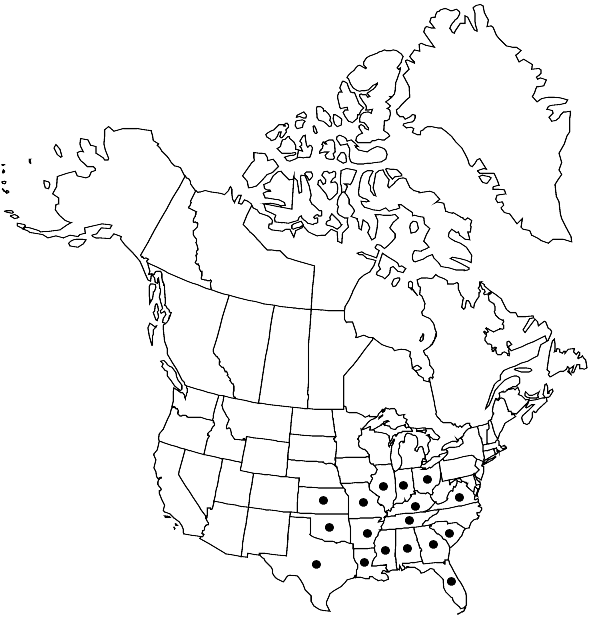Fissidens elegans
Muscol. Recent., suppl. 1: 167. 1806,.
Plants to 5.5 × 2 mm. Stem unbranched and branched; axillary hyaline nodules absent; central strand weak. Leaves as many as 12 pairs, oblong to lanceolate, acute to obtuse-apiculate, most ending in a clear, sharp cell, to 1.8 × 0.4 mm; dorsal lamina narrowed or rounded proximally, ending at or before insertion, not decurrent; vaginant laminae 1/2–2/3 leaf length, unequal, minor lamina ending near margin; margin serrulate, limbate and entire to remotely denticulate on proximal 2/3 or less of vaginant laminae of most leaves of perichaetial stems, often absent from leaves of infertile stems, limbidium intralaminal in part or completely, limbidial cells 1-stratose; costa ending 2–4 cells before apex or percurrent, ending in apiculus, infrequently short-excurrent, bryoides-type; lamina cells 1-stratose, pluripapillose, obscure, firm-walled, rounded-hexagonal, 5–8 µm, twice as deep as wide. Sexual condition rhizautoicous and gonioautoicous. Sporophytes 1 per perichaetium. Seta to 5 mm. Capsule theca exserted, erect, radially symmetric, to 0.8 mm; peristome scariosus-type; operculum to 0.5 mm. Calyptra cucullate, smooth, to 0.6 mm. Spores 9–13 µm.
Habitat: Sandy and clayey soils along roadsides and streams, banks of ravines, bluffs, loess banks, uprooted tree roots, trunks of trees, decaying stumps, sandstone
Distribution

Ala., Ark., Fla., Ga., Ill., Ind., Kans., Ky., La., Miss., Mo., Ohio, Okla., S.C., Tenn., Tex., Va., Mexico, West Indies, Central America, South America
Discussion
The obscure, pluripapillose lamina cells and leaf apex that terminates in a single, hyaline, sharply pointed cell distinguish Fissidens elegans. The limbidium is quite variable, occurring on the vaginant laminae of most leaves of perichaetial stems to being absent from the leaves of infertile stems. The species is close to F. pallidinervis (see discussion under 26). H. A. Crum and L.E. Anderson (1981) commented on a collection that was possibly made in Lafayette, Wisconsin, a site quite distant from the normal distribution of this species in North America.
Selected References
None.
Lower Taxa
No values specified."/2" is not declared as a valid unit of measurement for this property.